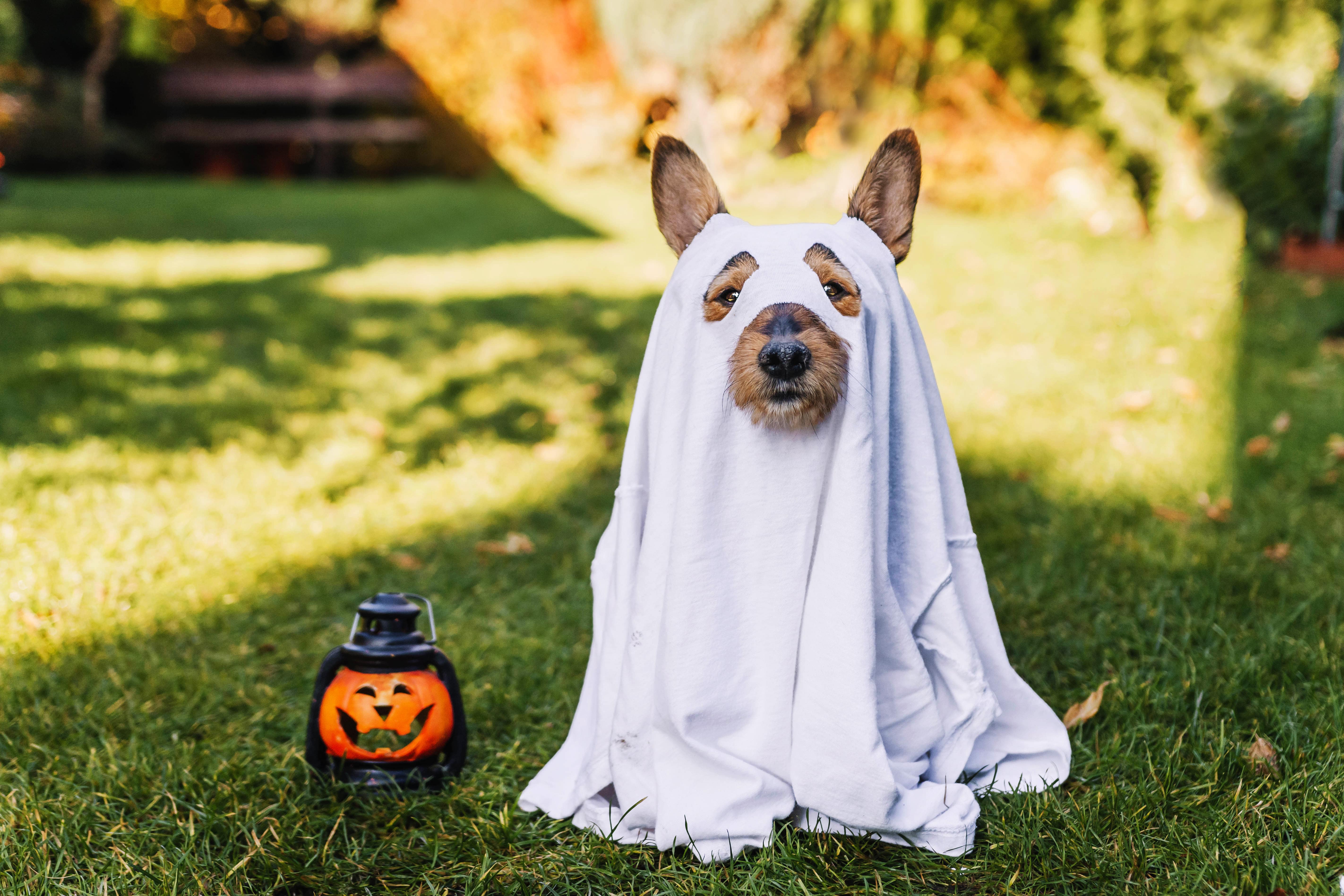
By Dr. Jordie Schnarr
Halloween can excite and sometimes scare your pet. Fortunately, you can take simple preventive measures to ensure your pet enjoys a safe and fun spooky season!
During this time of year, pets often experience anxiety triggers, such as fireworks and repeated doorbell ringing. Dogs and cats may tremble, pant, vocalize, attempt to hide, or try to escape outdoors. One of the best proactive steps you can take before Halloween is to create positive associations with the event.
Begin by gently exposing your pet to unfamiliar sounds like frequent doorbell ringing. Reinforce positive behaviour by rewarding your pet with treats and praise when they remain calm instead of barking. Consistency and repetition are key. If your pet is known to be fearful or anxious, introduce these sounds slowly. For firework desensitization, start by playing firework sound effects at a low volume and gradually increase the volume and frequency to simulate real experiences. You can also purchase products to support your pet's anxiety during Halloween, such as pheromone diffusers, Thundershirts, and ear covers.
If your pet is unlikely to be receptive to sound desensitization, ensure that they are kept indoors and confined in a quiet room so they can retreat, and have a safe space away from the excitement. All cats should be kept indoors on Halloween, particularly black cats.
Although everyone’s favourite part of Halloween is likely the candy, sweet treats can have negative effects on your pet’s health and can sometimes be fatal. Pets can develop pancreatitis and other gastrointestinal issues from eating our human treats. Be sure to keep candy out of your pet’s reach and ensure wrappers are disposed of.
Examples of treats that are highly toxic:
Chocolate - The high cocoa content can make chocolate lethal for pets. The higher the cocoa percentage, the more lethal the treat. Symptoms of exposure include: increased heart rate, high blood pressure, stumbling and incoordination, vomiting, diarrhea, seizures, and death in severe cases.
Xylitol - Xylitol is a sugar substitute that is commonly used in sugar-free candy and gum. It can even be found in typically safe foods like peanut butter. If consumed by dogs or cats, it can be VERY dangerous and potentially life threatening. Symptoms of exposure may be: lethargy, stumbling and incoordination, and seizures.
Nuts - Some nuts such as plain peanuts or hazelnuts can be safe for your pet, but can pose a choking hazard. Xylitol free nut butter is typically the safest option for your pet. Nuts that should be avoided are Macadamia nuts, raw cashews, pistachios, almonds, pecans, and more. Symptoms of exposure: vomiting, diarrhea, weakness, depression, tremors, and seizures.
If you fear your pet may have consumed a toxic treat, they should be taken to the emergency hospital for treatment immediately.
Learn more about keeping your pet safe this Halloween season by booking a wellbeing consultation with one of our vet techs1.
- TELUS Health MyPet now offers virtual consultations with registered veterinary technicians (vet techs) for cat and dog owners across Canada.
- Vet techs have a wealth of clinical experience and pet care knowledge. Vet techs can help you with behavioural and health maintenance concerns like grooming, life stage care, nutrition, and dental hygiene.1
1. Not applicable to all cases. If you are concerned about new symptoms or suspect your pet may need medication or an adjustment to a current medication, please book an appointment with your veterinarian. A registered vet tech may decide that an in-person visit is required to ensure your pet receives appropriate care.
